By Anastasia, Contributing Writer
How I Recovered After a Late Postpartum Hemorrhage
Having a new baby is HARD, let alone adding into the mix medical complications from delivery. After a fairly uncomplicated pregnancy, and swift delivery of my first baby, I thought I had lucked out in the realm of pregnancy/delivery complications and setbacks. Little did I know that exactly one week after my delivery, my husband and I would be rushing back to the hospital due to a late postpartum hemorrhage.
Most people are very aware that hemorrhages can occur after delivery. In fact, 99% of hemorrhages occur immediately after delivery and are treated on the spot. Only 1% of women experience what is considered a late postpartum hemorrhage, which can occur as late as 12 weeks after delivery. And I got to be that lucky 1%. Yay me.
Looking back, I try not to beat myself up too much, because honestly I hated the first three months after my little peanut was born. Yes, I said it, it was not all sunshine and rainbows in my household. A lot of it stems from postpartum depression, which I will discuss in a future post, but a good portion stemmed from my lack of recovery to make myself heal after my late postpartum hemorrhage.
There were multiple things I should have done, but did not do, that could have improved my overall health, and thus gave me the strength to deal with the normal challenges that occur in the transition to mommyhood.
What is a Late Postpartum Hemorrhage?
A late postpartum hemorrhage, also known as a delayed or secondary postpartum hemorrhage, is severe bleeding that occurs between 48 hours and up to 12 weeks after delivery. Most late postpartum hemorrhages typically occur one or two weeks after delivery. Severe bleeding is defined as saturating your pad within one hour for at least two consecutive hours, or passing golf ball-sized blood clots or larger.
For me, I was exactly one week postpartum, visiting with family members from out of town one evening, when I felt a gush. This was rather unusual given that my bleeding had really slowed down the day before. I excused myself to the bathroom to discover I had saturated my pad. Being a postpartum nurse, I knew I needed to start a pad count to assess the bleeding properly.
With the second fresh pad in place and quickly filling up, I ended up calling the on call OBGYN. As I was on the phone with him, the flood gates opened. With that, I grabbed a towel and held it in between my legs to contain the bleeding and yelled for help. Luckily since family was there, they were able to watch the baby as my husband put me in the car and rushed me to the hospital. Definitely scary stuff!
Causes of a Late Postpartum Hemorrhage
There are multiple reasons why a late postpartum hemorrhage may occur. One reason is retained placenta, which is what caused mine. Retained pieces of placenta or membranes in the uterus that may still be attached to the uterine wall prevent it from contracting adequately, causing bleeding. Infection can also result from this.
Other causes of late postpartum hemorrhage are uterine abnormalities or lower genital tract trauma often associated with traumatic deliveries such as forceps or episiotomy. Women who have bleeding disorders such as von Willebrand’s disease or hemophilia B and factor X1 deficiency are at increased risk as well.
Immediate Treatment For a Late Postpartum Hemorrhage
Seeking immediate treatment is very important if you think you are hemorrhaging. Death from childbirth happens, and hemorrhaging is one of the leading causes! So call your midwife or OB right away! When we arrived at the hospital they started an IV to bolus fluids, and gave me Methergine, a medication to help the uterus contract. They also did lab work, a pelvic exam, and an ultrasound to see if there were any retained placental products. My cause of hemorrhage was due to some placental fragments still left inside the uterus. For some women a manual removal of the remaining placental products is needed.
Depending upon the cause of hemorrhage, some may also need a Dilation and curettage (D&C) to remove products of conception. Others may also need a blood transfusion if an extreme amount of blood loss occurs. If the hemorrhage is life-threatening, a hysterectomy may be needed.
How I Felt
After the hemorrhage I was extremely tired and weak. This trumped any kind of pregnancy and new mom tiredness I had ever felt. The first day I got home, showering was literally the only thing I could manage. But the residual tiredness was probably the most exhausting part. I was extremely emotional, depressed, had trouble concentrating, and felt dizzy. It wasn’t until recently that I learned if you have a postpartum hemorrhage you are more likely to also have postpartum depression. And indeed I did. I will go into more detail on my experiences with postpartum depression in my next article.
How to Heal at Home After a Late Postpartum Hemorrhage
1. Rest
This may seem like common sense, but really needs to be discussed. My body was already exhausted from delivery and lack of rest for a solid week, and then sustained loss of blood. When trauma happens, rest is needed. But unfortunately, the most rest I got was in the hospital the night I stayed. I had my husband home for only a couple extras day after the hemorrhage because his paternity leave was already quickly coming to an end. But his lack of knowledge with a baby, left me with choosing to do all the work instead of letting him figure it out.
Even when I returned home, I should have set up camp in the bedroom or on the couch to rest, in between feeding the baby. Instead, the next day I resumed all my daily day to day tasks like cooking and cleaning. I even had more family come to visit, so I felt I had to “entertain.” Looking back, I should have asked for help. Since when did society change from the mentality that it takes a village to raise a child, to being some stepford wife who cooks and cleans and has it all together? I SHOULD have asked for help plain and simple. I NEEDED to just lay down and rest, and I didn’t.
2. Fluids
I will say I did a great job of drinking plenty of water. Since I was breastfeeding I was very thirsty all the time, so I filled up a big pitcher of water and drank as much as I could. That being said, I also did my fair share of coffee in order to try and give me some form of energy. And not just black coffee, but the sugar and cream-filled kind. This just created short bursts of energy, that usually left me feeling more drained than anything. So water is your friend, drink up!
3. Iron
Whenever one sustains a loss of blood, iron supplementation is usually recommended. Iron is what your body uses to make hemoglobin, which is a part of your red blood cells that carry oxygen through your body. Now most OBGYNs will recommend some form of iron supplementation. Keep in mind that taking iron pills make you constipated.
But a great way to get more iron is to eat a wide variety of foods. Dark leafy greens such as spinach are wonderful sources of iron. Lentils, pumpkin seeds, chickpeas, and almond butter can also boost iron. If you are a meat eater, darker meats such as beef, venison and lamb are packed full of iron. For the seafood lovers, shrimp and oysters are great.
Other little known sources of iron are nettle seeds, which are recommended for anemia because they cleanse the blood vessels and liver, and strengthen our immune system. Beet juice is also great because it is not only rich in iron, but is important in hemoglobin synthesis.
4. B-12
A lot of the focus tends to be on iron, but B-12 is a great vitamin supplement that helps with weakness, fatigue and anemia. Some great sources of B-12 are fish and shellfish, meats, poultry and eggs.
5. Vitamin C
Vitamin C helps improve your iron absorption. Add in foods such as tomatoes or strawberries or other citrus fruits to help improve absorption of iron. One thing to remember is to avoid dairy with iron rich foods because the calcium in dairy can make it harder for your body to absorb iron. So limit milk, yogurt, and cheeses when trying to increase iron intake.
6. Diet
Eating food rich in protein, along with super foods packed full of iron and vitamins will help improve all over health when combating anemia. I could only muster enough energy to turn on the coffee pot, and pop a bagel in the toaster, essentially living off carbs and sugar to keep me going. This led to small spikes of energy but really low peaks which did not help my feelings of exhaustion.
Looking back, my postpartum experience with my child could have been more enjoyable had I felt better mentally and physically. Now trying to live a more healthy lifestyle, I can truly say that the foods we put in our body fuel our bodies for better or worse.
A late postpartum hemorrhage is not only very scary, but can be life-threatening. Recovery afterwards takes time and lots of rest! A good support system goes along way when things don’t always go as planned. Simple things such as watching the baby so a mom can shower, starting a meal train to bring healthy nutritious food, or even running the sweeper will help in the long run. Had I done some changes in my diet and asked for help, my postpartum experience with my baby could have been a lot different.
Did You Experience a Late Postpartum Hemorrhage or Know Someone Who Did?
Sources:
Association of Ontario Midwives
http://www.ontariomidwives.ca
K.M.Groom and T.Z. Jacobson
https://www.glowm.com/pdf/PPH_2nd_edn_Chap-56.pdf

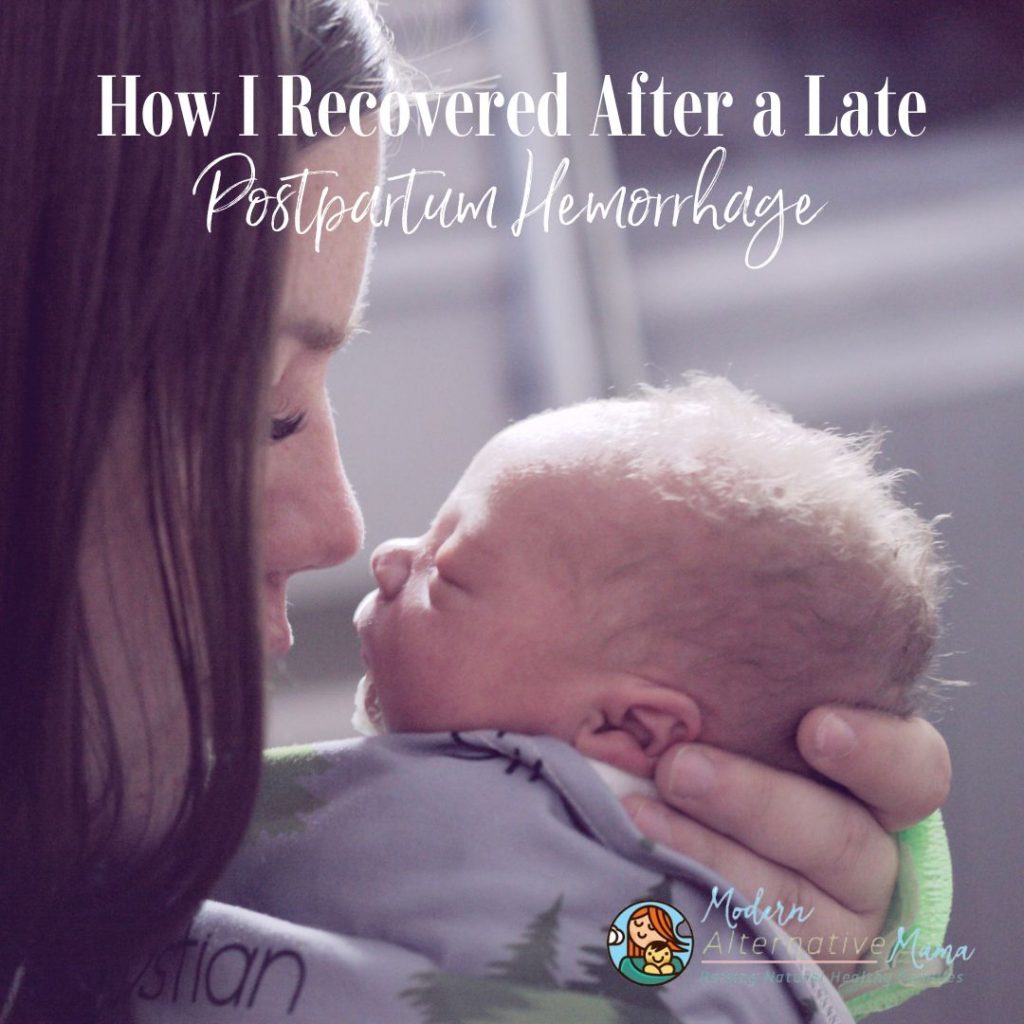
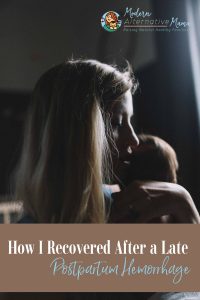
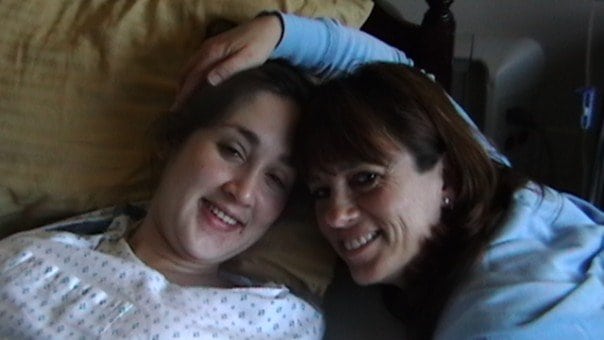

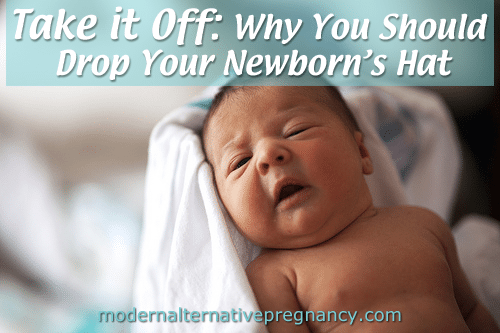
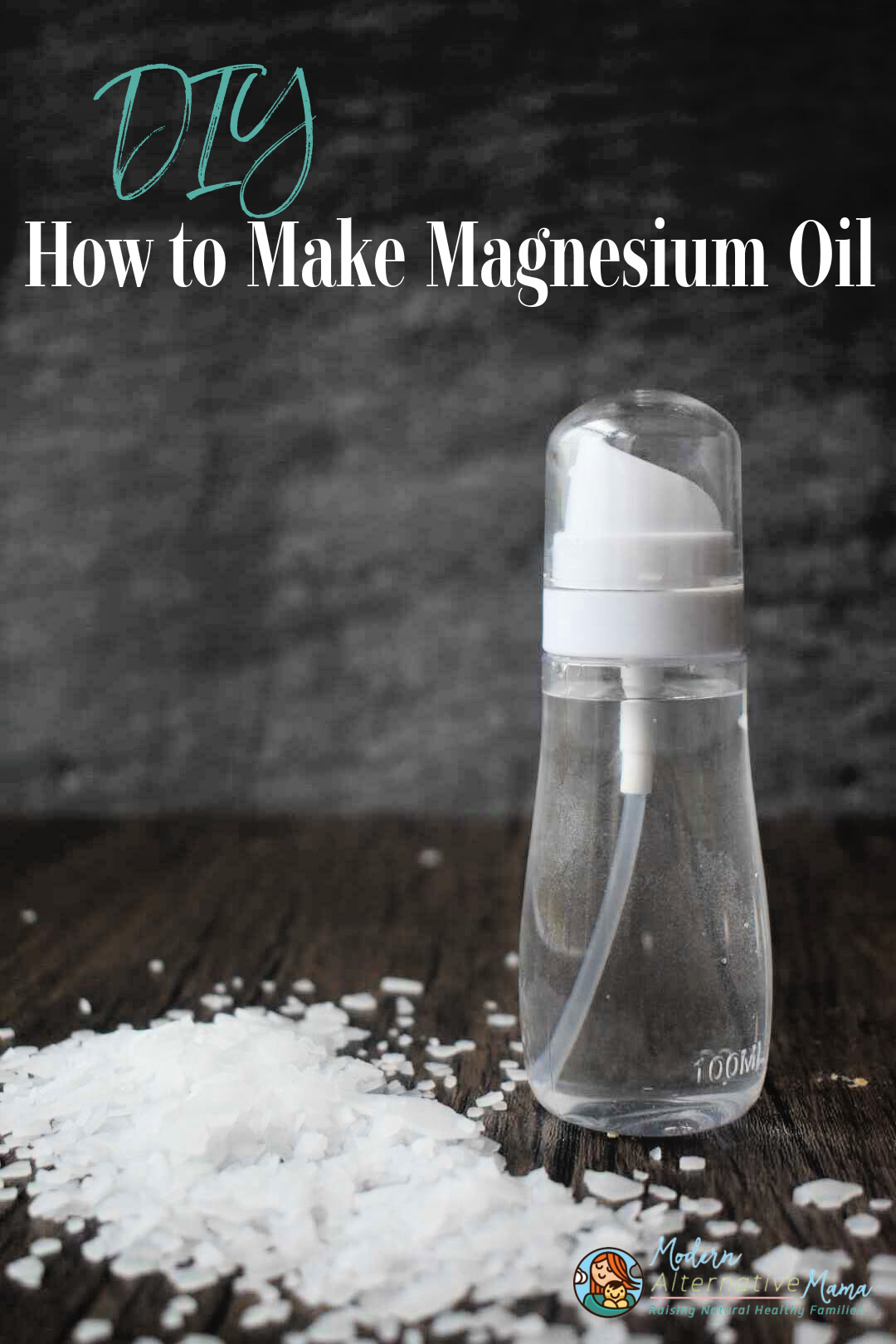

WOW! I finally found someone who has experienced this like me! I had the perfect first pregnancy. The doctor yanked my placenta out after my daughter was born. When I was out shopping (alone)…almost 2 weeks after giving birth, I felt a gush, and another, and another, and I dropped my items to buy, and ran with my baby back to the restroom. It came out like a faucet. I had to ask a stranger for help. Miracle..an OB nurse told me to come out and put my feet up. EMT’s started IV, I was cold and my husband said I was gray. Another doc yanked the rest of the placenta out at hospital. (7 liters of IV later
they sent me home that night?!?!?!?!?
Hi Kate, I have a personal story regarding this- I think I had this but I’m not sure and would like to talk to you privately via email if you can. Please email me! Thank you:)
[…] are more stories out there that go unheard. Anastasia and Timoria also faced postpartum hemorrhaging. Read their compelling tales for more […]
I suffered from this but i bled for 11 weeks while my check ups kept happening and we scheduled more visits, an ultrasound and eventually a D&C. I have mild anemia now just to weeks later and I also have some vertigo. Hoping this goes away soon. Anyways, not a fun experience since I have a toddler at home, too. Husband back at work one week after baby and I’m home alone, no family around. Tried to get some help but was hard and basically doing it all myself. I’m not sure I want to have another one because I don’t think my body can handle it again.
I had pph at four weeks postpartum. I didn’t end up needing a blood transfusion and eventually had a d&c. I have struggled with low milk supply ever since baby was born (now 7 weeks) and wonder how this might be linked to retained placenta and pph…
I also experienced ppd but it was almost immediately after child birth and the pph did not come until later.
I feel like my body is faulting me and I may never be able to exclusively breastfeed baby.
Hi Anastasia 🙂
Thank you for writing to help others! This article certainly would have comforted me after my hemorrhage. Medically, my experience was similar to yours. I was 5 days pp, third baby, uncomplicated pregnancies and deliveries each time. So I was comfortably at home, not worried, thinking the hard part was over. I passed a large clot Sunday morning and called the doctor like you’re supposed to. They said “It’s probably nothing,
but if x, y, or z happens, go straight to the ER.” At midnight that night, with a 2yo and 5yo in bed and a hungry newborn, I started bleeding and it didn’t stop. My in-laws cane overt and my husband rushed me to the hospital. My Eagle Scout husband kept telling me to drink water, because he knew it would help combat blood loss. I was going into shock before we got there, and losing consciousness as we arrived. I don’t know the details, but I know it was pretty bad. It was 4 or 5 hours before they were able to stop the bleeding, and I spent three days in the hospital. Despite all that, I wasn’t really scared after the moment we first arrived at the ER. It was weeks later before I realizedjust how serious the situation had been. At the time I thought “I’m at the hospital now; everything’s fine. They’ll take care of me.”
It was almost 5 1/2 years ago, and every so often it just hits me – maybe because I didn’t process it at the time – how close I was to death. How different my husband and children’s lives would be. How women die from this all the time, but I was lucky enough to have a doctors office to advise me and live close to a good hospital and have a husband who could drive me and make me drink water. . . . It’s still surreal. So I wind up writing on a blog article at 3 am,because ppl don’t really want to hear me rehash a story from 5 years ago, but things like that stick with you, and it helps me to talk about it. 🙂
Hi Ann,
Same name and exactly same experience with me one week ppt.
I wish more first mothers were informed that this is a danger sign, a very dangerous one.
If i knew i would av rushed to the hospital immediately but instead i kept for 2 hrs hoping it would go. Thanks for sharing
I had a post parfumerie haemorrhage 38 years ago three weeks after my only cchild was born. My husband called the doctor who said he would send an ambulance straight away. By the time the medics arrived I was lying in a bath full of large liver like clots of blood. My daughter had to go with me back to the maternity hospital as I was breast feeding. I was put into a side room and given a plastic tub. I had to buzz every time I passed a clot. I was left like this all nightqqq and a nurse pumped milk from me for the baby who was in the ante natal ward. In the morning there was a shift change and the nurse going off shift told me I had to have a shower as I was going for a D&C. I fainted in the shower and all hell broke loose. When I came to there was a ward sister barking orders for blood and saline infusions. I had the procedure and was sedated and being transfused for two days followed by another three days bed rest. All this time the nurses took my milk the birth was difficult and I had to have an episiotomy as baby was in distress. I could have died but I didn
Hello- I can also relate to your story. After having my first baby by c-section, I too had severe hemorrhaging and passed very large blood clots (size of my fist and a half) 1 week postpartum. I went to the ER and the dr continued to remove the additional blood clots. I was in excruciating pain and recovery was long and treacherous. Currently I
Sorry my sentence was cut off- meant to say that I
Hi Anastasia, Thank you for the post! My wife started bleeding 1 week after giving birth and we suspect something really bad is happening so I googled while taking her to hospital and read your post on PPH. She’s still on the ICU now under monitor but I hope she’ll be alright soon. I guess there’s nothing much I could do other than trusting her to the doctor and God’s healing hands. The nurses are still transfusing the blood every few hours. We were fortunate to have my mother in law take care of the baby while I stay and the hospital.
I just had a pph 1 week ago at 4 weeks pp. I had an emergency csection at 30 weeks so baby still in NICU. However I did have my 10 year old son at home and luckily for me (traumatic for him) we spent the night watching movies and he passed out in my bed. I woke at some point in the middle of the night after a gush of warm blood and tried to find my phone . Must have fallen off the bed and passed out. Woke up Idk how much later to my son waking me up in a panic. My bed looked like a murder scene and that
Thank you for your story, I found it when searching for some information because this just happened to me. Mine happened 11 days post partum and was a sudden deluge.
I was sleeping when the baby woke me up – I thought I may just had an incontinence issue (fun side effects of child birth!) so set her down to use the bathroom. I went to the bathroom and found that my
Hi Ladies,
Happened to me, was 8 years ago now but I still find comfort researching about post parting hemorage… either that or I like to torture myself!
Happened to me 2 weeks after giving birth to my third baby. I called my mother who immediately rushed round to mine and took me to the hospital, upon arrival I was passed out, she had laid the car seat as far back as possible. I woke in A&E with doctors and nurses doing all sorts, cutting off my jeans whilst I pleaded they kept me alive for my children’s sakes. They kept me alive, and stopped the heavy bleeding. I was admitted for a few days, on maternity so my baby could be with me, examined, poked and prodded and sent home.
My mother explicitly told me if anything like that ever happened again to call an ambulance!!
Exactly 2 weeks later whilst in my local shop prior to taking my eldest into his school it happened again!! I tried to get to the supermarket toilets but ended up lying on the floor just outside the toilets trying so to keep the blood up top in the important parts whilst calling myself an Ambulance (remembering what my mom told me) whilst trying to look calm for my sons sake, whilst also bleeding all over the shop floor…. by the entrance! The toilets are located near the toilets!!
Ambulance trip back to A&E and I’m greeted by the nurse “oh it’s you again! I was just saying we had a case like this two weeks ago” lovely lady, not the best greeting….
So yes another stay, more IVs, more scans, mri etc etc
This time the doctors were more interested & I was in no rush to return home, hospital was the best place for me. Eventually the bleeding stopped & I was sent home.
The bleeding didn’t hurt at all, I was adamant every night that I’d not wake up in the morning and my partner or my kids would find me covered in blood….
Further MRIs and scans later it was found I have varicose veins in my womb… rare, I try to google “postpartum hemorage varicose veins” and google decides I am infact dead! Ha
So yeah options were limited, procedures such as beads in the veins, foam in the veins etc etc were likely to make a bad situation worse so I had to choose 1. Bad sit worse procedure 2. Straight for the hysterectomy or 3. Go home and hope for the best!!
The bleeding had stopped (again) so I opted for option 3. Agonising years of thinking I was going to die, every day was my last and my children were going to loose me!
In hindsight I think the hysterectomy may have been a less painstakingly idea.
Any way jheeze why after 8 years am I still researching what happened?
Glad we are all still here to tell the tale & RIP all of those women who aren’t here to tell theirs!
Buff love ladies
Hi ladies,
This happened to me nearly 4 years ago!
I was 6 days post birth and started my normal morning when I suddenly noticed a gush of blood not worrying I waddled to the bathroom and all hell broke loose! Was like someone turned the water on full power! I was petrified called for an ambulance and was took to hospital There was no way I could move off the toilet. Sent home a few days later after iv antibiotics to it happening again this rigmarole happened 3 times before I was finally admitted for a d&c. It comes that apparently I had a post partum womb infection. I look online a lot about the chances of the same thing happening again as surly I’m not prone to an infection again! But I always find research about primary pph’s and get conflicting advice from different professionals. I just want to know where I stand before I have a 3rd child. My first was plain sailing and my second scared the life out of me. It’s so nice to come across a story that don’t make you feel so alone.